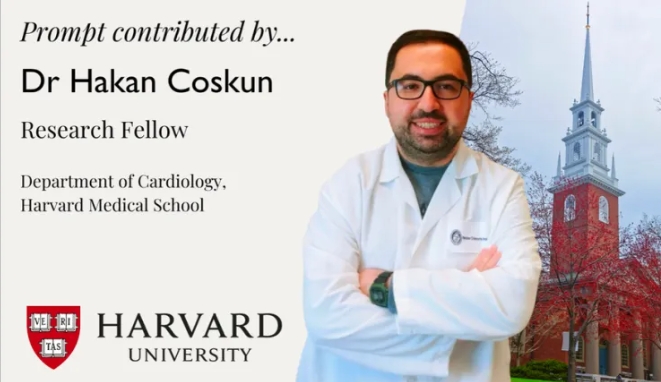Today we will analyze the questions in the genetics area of the Cambridge Re:think Essay Competition:
Gene therapy is a medical approach that treats or prevents disease by correcting the underlying genetic problem. Is gene therapy better than traditional medicines? What are the pros and cons of using gene therapy as a medicine? Is gene therapy justifiable?
Gene therapy is a medical treatment that treats or prevents disease by correcting underlying genetic problems. Is gene therapy better than traditional treatments? What are the pros and cons of using gene therapy as a medical treatment? Is gene therapy “reasonable”?
This question was asked by Dr. Hakan Coskun, a cardiology fellow at Harvard Medical School.

In this prompt, Dr. Coskun asked three questions (smaller questions) about genetics (gene therapy):
Is gene therapy better than traditional treatments?
What are the pros and cons of gene therapy?
Is gene therapy “reasonable”?
For this question, we should focus on answering the last question of the questioner, because this question is the most abstract and the easiest to distinguish the knowledge, thinking and writing levels of different players.
So, is gene therapy justified?
Justifying a technology usually involves multiple aspects, including (but not limited to) assessment of the technology, risk assessment, legal licensing assessment, etc.
Let's do it one by one.
technology assessment
From a technology perspective, gene therapy is a medical method that treats or prevents disease by correcting underlying genetic problems. It is important to note that it is "eradicating" the genetic cause of the disease rather than just treating the symptoms.
With gene therapy, difficult single-gene genetic diseases such as hemophilia and sickle cell anemia can be treated. Notorious diseases such as AIDS, Parkinson's and Alzheimer's can also be prevented.
Gene therapy acts directly on genes. Theoretically, the therapeutic effect can last for a long time and even benefit the patient throughout his life. In contrast, traditional therapy has a longer course of treatment and may require patients to undergo regular blood transfusions and long-term medication.
However, gene therapy also has drawbacks. It is technically complex and requires expensive equipment and highly trained personnel. These factors result in the often high cost of gene therapy, which places a significant financial burden on patients.
However, if you look at it optimistically, the high cost of complex technology will gradually decrease with technological advancement, and may even drop off a cliff at a certain point in time. This cyclicality has many precedents in the history of technology.
risk assessment
Gene therapy is still in the experimental stage, and relatively few gene therapies have been clinically approved. The author of this question, Dr. Hakan Coskun, recommended that contestants read Siddhartha Mukherjee’s book The Gene: An Intimate History. In this book, Dr. Mukherjee illustrates some of the possible risks of gene therapy through some death cases of gene therapy:
1. Off-target effects: Gene therapy may sometimes affect non-target cells, leading to the development of other unknown diseases and causing new health problems.
2. Insertion mutagenesis: Viral vectors used to deliver therapeutic genes may be inserted into the wrong location in the host genome, which may cause cancer.
3. Immune response: The immune system may regard the input of normal genes as a threat and launch an attack. This may lead to treatment failure or severe immune-related side effects.
By the way, this is Dr. Mukherjee who wrote "The King of All Maladies: A Biography of Cancer".
legal assessment
Also in the book The Gene: An Intimate History, Dr. Mukherjee also mentioned the legal obstacles and risks currently encountered by gene therapy:
1. Gene therapy is a relatively new field, and the legal and regulatory frameworks in many countries have not yet fully adapted to the development of this emerging technology. This mismatch can lead to regulatory lags in effectively managing the safety, effectiveness, and ethical issues of gene therapies. For example, in the CRISPR "gene-edited baby" incident in 2019, the person involved, "He", took it upon himself to "start work" and later "got in."
2. Genetic information is very sensitive personal information, involving personal privacy and family genetic information. This information may be used by illegal organizations and endanger people's rights and personal safety. For example, the commercial DNA testing company 23andMe sold users’ genetic data to a pharmaceutical company (GlaxoSmithKline), causing great controversy.
3. The research and development of gene therapy involves a large number of intellectual property issues: including patent rights, copyrights and trade secrets. The law needs to balance public interests and ensure that gene therapy research results can be widely used to treat diseases. The American company Myriad Genetics holds a patent on the BRCA-1/2 gene (breast cancer risk gene), which limits the development of related tests by other institutions.






no comments
To post a comment you must firstlog in